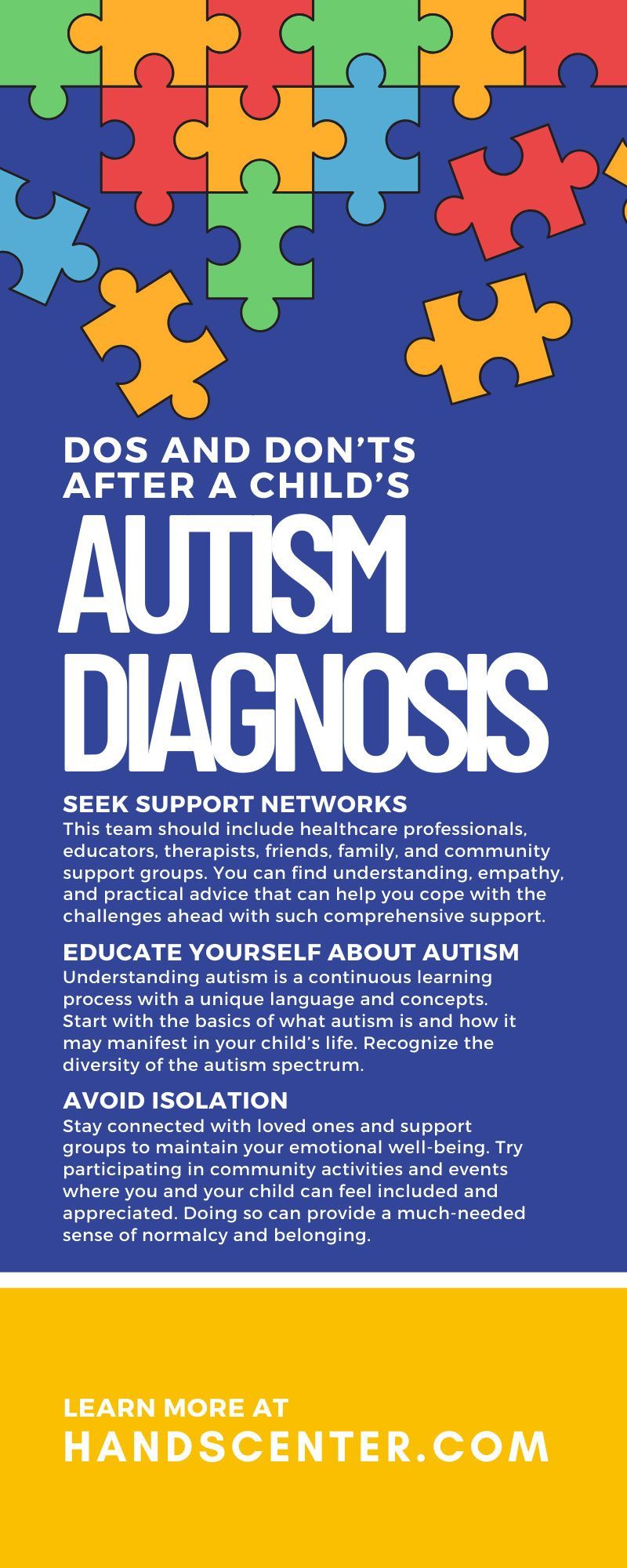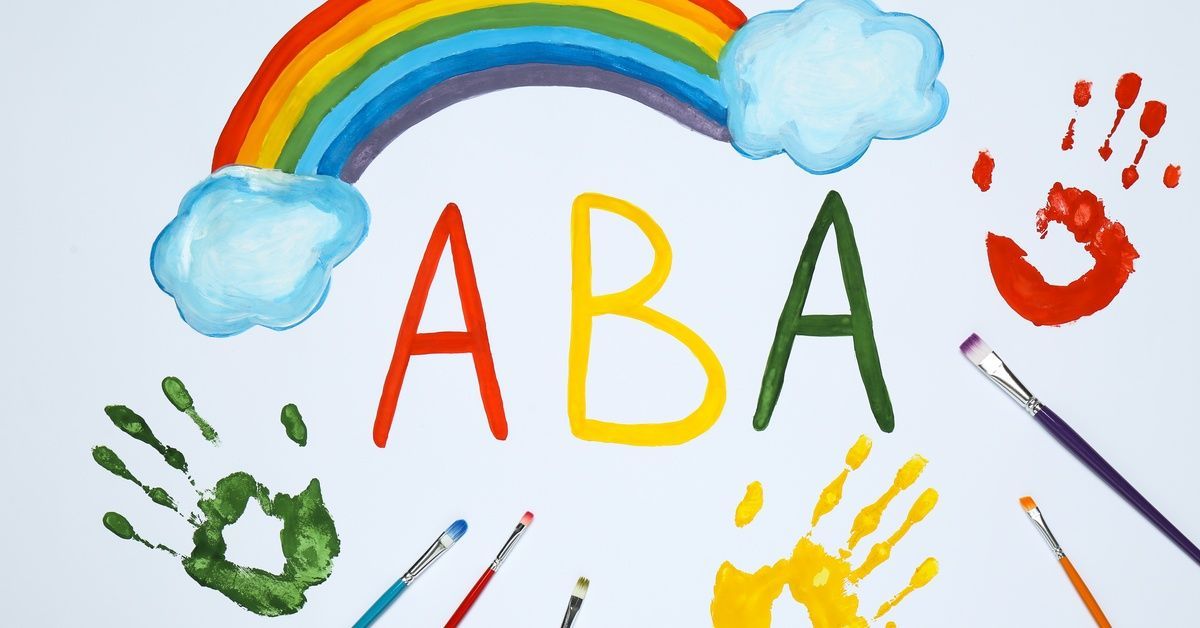Dos and Don’ts After a Child’s Autism Diagnosis
Learning that your child has been diagnosed with autism spectrum disorder (ASD) can be an overwhelming and deeply personal moment. At once, it marks the beginning of a unique life path for you and your family, one that will undoubtedly be full of challenges, growth, understanding, and moments of profound connection.
The initial emotional storm can leave you feeling adrift, not knowing where to turn or what the future holds. Therefore, arming yourself with practical guidance and a supportive community is crucial as you start to find your bearings.
Here’s a roadmap of the dos and don’ts after a child’s autism diagnosis you can use to help you build a life that accommodates and celebrates your child’s uniqueness.
Dos After a Child’s Autism Diagnosis
It’s natural to feel a mix of emotions after your child receives an autism diagnosis—confusion, concern, and maybe even relief at having a clearer understanding of your child’s behavior. Here, we’ve compiled a list of essential “dos” that will guide you through this initial phase.
Seek Support Networks
Building a solid support team is one of the most important things you can do after your child receives an autism diagnosis. This team should include healthcare professionals, educators, therapists, friends, family, and community support groups. You can find understanding, empathy, and practical advice that can help you cope with the challenges ahead with such comprehensive support.
Find Community Resources
Seek local and national organizations that offer support to families living with autism. These resources can provide you with a wealth of information, access to group therapy sessions, and even social activities for your child.
Online Support Groups
Participate in online forums and support groups where you can connect with other parents who share a similar journey. This virtual community can be a source of encouragement and diverse experiences, giving you a broader perspective on what it means to raise a child with autism.
Educate Yourself About Autism
Understanding autism is a continuous learning process with a unique language and concepts. Start with the basics of what autism is and how it may manifest in your child’s life. Recognize the diversity of the autism spectrum.
Every child is different, and understanding where your child falls can help you address their specific needs more effectively. Also, learn about the legal rights of individuals with autism so you can advocate effectively, both in your child’s educational setting and in the community.
Create a Routine and Structure
Children with autism often thrive in environments with consistent routines and structures. Creating a predictable day-to-day life can reduce anxiety and stress for both you and your child. Use visual schedules to help your child understand and anticipate the day’s events. These visual cues can offer them a sense of control and reduce frustration, often leading to challenging behaviors.
The Power of Consistency
Maintain consistency in your disciplinary techniques and expectations. Learning new skills can take time for children with autism, and consistent reinforcement is key to their development.
Advocate for Your Child’s Needs
Seek early intervention services, as they are most effective when initiated as soon as possible. These services can help your child develop crucial skills that will serve them throughout their life. We highly recommend working with your child’s school to create a tailored Individualized Education Program (IEP) that addresses their unique learning style and needs. Stay involved in every step of the planning process to ensure your child’s education is truly individualized.
Healthcare Coordination
Ensure clear communication between your child’s various healthcare providers. A coordinated approach to care can prevent gaps in treatment and ensure your child’s healthcare team is managing all aspects of your child’s health effectively.
Focus on Strengths and Celebrate Small Wins
Find and encourage your child’s strengths, whether they excel in mathematics or the arts or have a talent for caring for animals. Don’t overlook even the smallest achievements. Every milestone your child reaches is an opportunity for celebration. By focusing on their strengths, you can build self-esteem and motivation.
Maintain a Positive Outlook
Cultivate optimism, and don’t underestimate your child’s potential. A positive outlook can shape how you and others support your child, setting the stage for a rich and fulfilling life.
Don’ts After a Child’s Autism Diagnosis
Being aware of common pitfalls that could complicate your family’s journey is crucial before entering the new reality following your child’s autism diagnosis. These “Don’ts” serve as a cautionary guide, helping you to steer clear of obstacles that may hinder your child’s progress and well-being.
Avoid Isolation
It’s common to want to retreat after receiving a difficult diagnosis, but isolation can exacerbate the stress and anxiety you’re feeling. Stay connected with loved ones and support groups to maintain your emotional well-being. Try participating in community activities and events where you and your child can feel included and appreciated. Doing so can provide a much-needed sense of normalcy and belonging.
Compare Your Child to Others
Every child has a unique developmental timeline. Comparing your child’s progress with that of neurotypical kids can lead to unnecessary worry and frustration. Instead of comparison, celebrate the differences that make your child unique. Remember that diversity in abilities is what makes our society rich and interesting.
Overwhelm Yourself With Information
Avoid the trap of trying to absorb all the available information on autism at once. Just as Rome wasn’t built in a day, your knowledge and understanding of autism will grow over time.
Take It One Step at a Time
Focus on learning what is most immediately relevant to your child’s current needs. This targeted approach prevents information overload and allows you to learn in a more meaningful and less stressful manner.
By adhering to this list of the dos and don’ts after a child’s autism diagnosis, you can lay a strong foundation for your child’s future. Remember, while the road ahead may seem uncertain, you are not alone. Support networks, resources, and an entire community are ready to help you and your child thrive.
Consider enrolling in ABA therapy training for parents to further your understanding and support your child’s development. Understanding the principles and practices of ABA can provide a structured approach to your child’s growth and help them reach their full potential.







